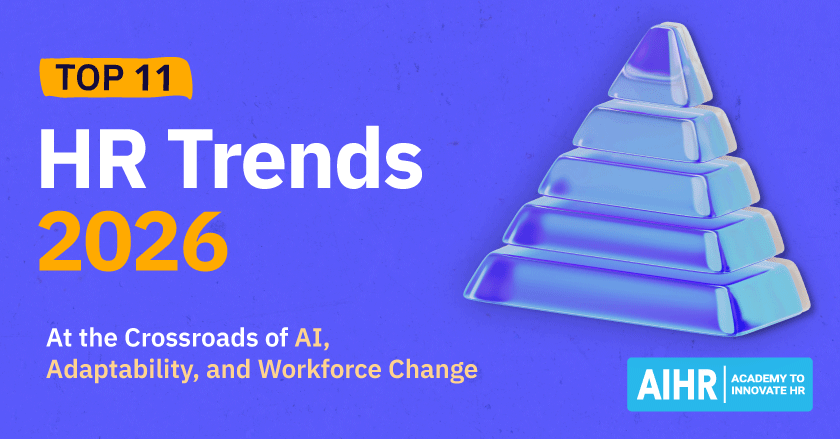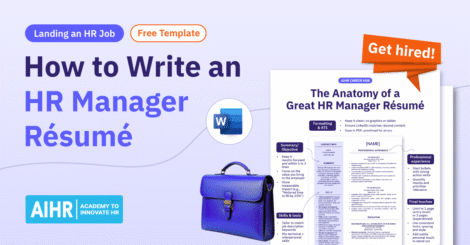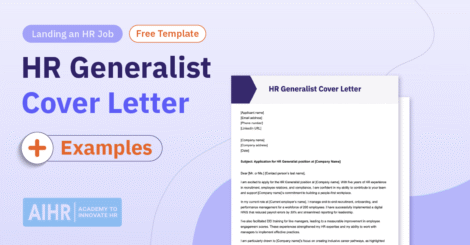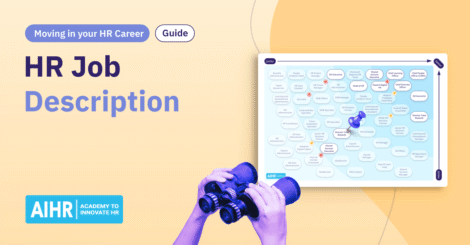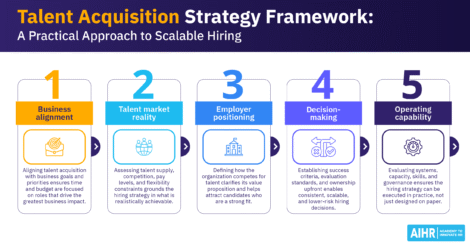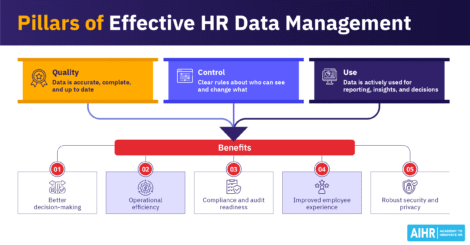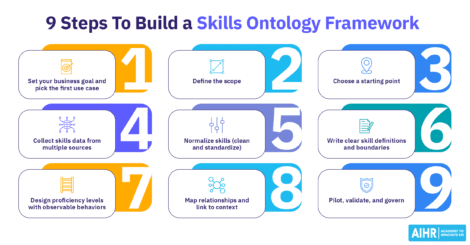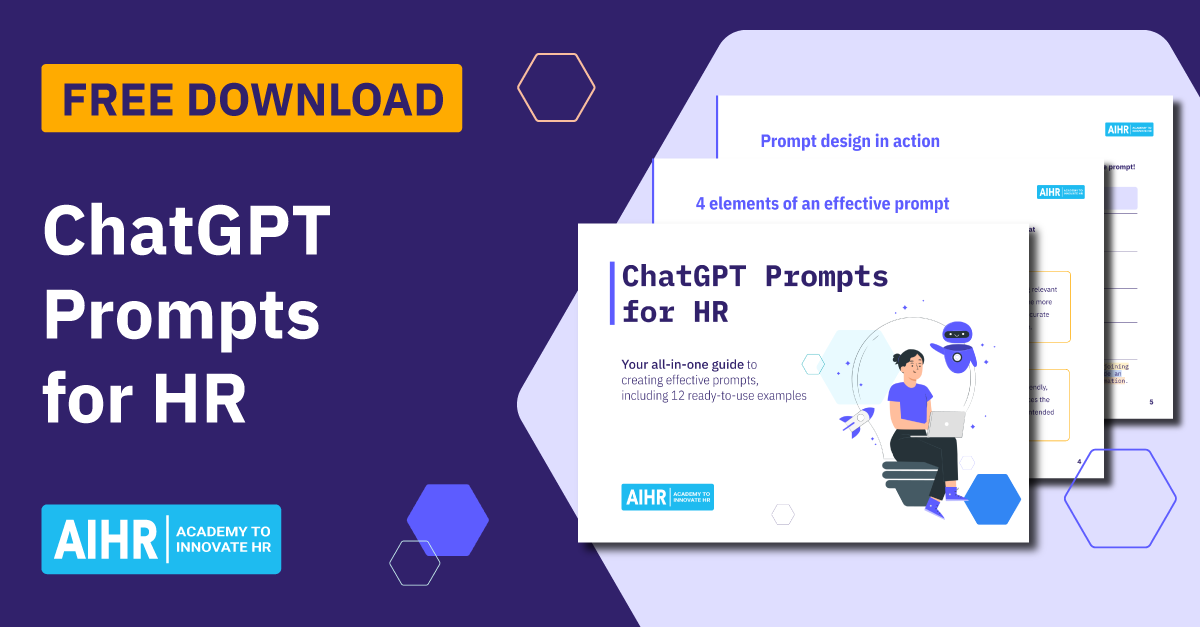The Employee Relations Specialist works closely with unions and employee representatives to create and deliver people practices that develop and maintain positive working relationships between an organization and its people.
Contents
Role family & work experience
Key responsibilities
Skills & competencies
Job description template
Detailed responsibilities & tasks
KPIs for this role
Role family & work experience
- HR Role family: Solution architect
- Work experience: 4-7 years
Key responsibilities
- Developing and maintaining positive relationships with employees, management, and labor unions.
- Conducting investigations into employee misconduct or violations of company policies.
- Consulting with the organization on labour laws and applicable legislation.
- Providing counsel to workers regarding company and governmental policies, regulations, and procedures.
Skills & competencies
- Analytics
- Translation
- Builds Trust
- Data-Driven
- Develops and Coaches
- Driven Results
- Employee Health
- Employee Relations and Labour
- Engages People
- Interprets context
- Manages Conflict
- Safety and Wellbeing
- Sets direction
- Solves Problems
- Talent and Performance Management
Job description template: Industrial Relations Specialist
The Industrial Relations Specialist is responsible for managing and maintaining positive employee relations, ensuring compliance with labor laws and regulations, and handling all industrial relations issues within the organization.
Responsibilities:
- Developing and maintaining positive relationships with employees, management, and labor unions.
- Ensuring compliance with labor laws and regulations.
- Handling all employee grievances, disputes, and complaints.
- Conducting investigations into employee misconduct or violations of company policies.
- Facilitating negotiations between management and labor unions.
- Providing advice and support to management on industrial relations issues.
- Developing and implementing policies and procedures related to industrial relations.
- Advising management on workforce planning and productivity issues.
- Analyzing and interpreting labor laws and regulations.
- Preparing and presenting reports and recommendations to management.
Requirements:
- Bachelor’s degree in Human Resources, Industrial Relations, or a related field.
- Minimum of 5 years of experience in industrial relations or a related field.
- Strong knowledge of labor laws and regulations.
- Excellent communication and negotiation skills.
- Strong analytical and problem-solving skills.
- Ability to work effectively in a fast-paced and dynamic environment.
- Strong attention to detail and organizational skills.
- Ability to maintain confidentiality and handle sensitive information.
- Ability to work independently and as part of a team.
Detailed responsibilities & tasks
- Developing and maintaining positive relationships with employees, management, and labor unions.
- Ensuring compliance with labor laws and regulations.
- Handling all employee grievances, disputes, and complaints.
- Conducting investigations into employee misconduct or violations of company policies.
- Facilitating negotiations between management and labor unions.
- Providing advice and support to management on industrial relations issues.
- Developing and implementing policies and procedures related to industrial relations.
- Advising management on workforce planning and productivity issues.
- Analyzing and interpreting labor laws and regulations.
- Preparing and presenting reports and recommendations to management.
Detailed skills description
- Strong knowledge of labor laws and regulations: An Industrial Relations Specialist should be familiar with local, state, and federal labor laws and regulations.
- Negotiation skills: The ability to negotiate effectively and find common ground between management and labor unions.
- Communication skills: Excellent written and verbal communication skills are critical to be able to convey complex information and ideas to different stakeholders.
- Analytical skills: Strong analytical skills are required to analyze and interpret data and trends to develop strategies and solutions for labor relations.
- Problem-solving skills: The ability to identify and solve problems is essential for an Industrial Relations Specialist to navigate complex labor relations issues.
- Conflict resolution skills: The ability to mediate and resolve conflicts between management and labor unions.
- Organizational skills: The ability to manage multiple projects and deadlines while maintaining accurate records and documentation.
- Attention to detail: A keen eye for detail is essential to ensure compliance with labor laws and regulations and to prevent disputes.
- Relationship building skills: The ability to build and maintain positive relationships with management, employees, labor unions, and other stakeholders.
- Empathy and emotional intelligence: An understanding of and sensitivity to the needs and perspectives of both management and employees is essential to foster a positive work environment and resolve disputes effectively.
KPIs for this role
- Employee relations metrics: This can include tracking employee satisfaction levels, grievance resolution time, employee turnover rates, and other key metrics that reflect the overall health of the company’s employee relations.
- Compliance with labor laws and regulations: Ensuring that the organization is compliant with all applicable labor laws, regulations, and collective bargaining agreements is a critical KPI for an Industrial Relations Specialist.
- Effective management of labor disputes: A key responsibility of an Industrial Relations Specialist is to effectively manage and resolve labor disputes, including contract negotiations, strikes, and other forms of industrial action.
- Timely and accurate communication: The ability to communicate effectively and in a timely manner with all stakeholders is essential in this role. This can include communicating with employees, management, unions, and other relevant parties.
- Cost management: The Industrial Relations Specialist must also manage costs associated with labor relations, including wages, benefits, and other expenses.
- Positive impact on employee morale: Ensuring that employees feel valued, respected, and engaged in their work is another important KPI for an Industrial Relations Specialist.
- Training and development: Providing training and development opportunities for employees, management, and other stakeholders to enhance their understanding of labor relations is a key KPI for this role.
- Risk management: Managing risks associated with labor relations, such as legal and reputational risks, is also a critical KPI for an Industrial Relations Specialist.
- Continuous improvement: Continuously evaluating and improving the organization’s labor relations policies, practices, and procedures is a key KPI for this role.


